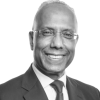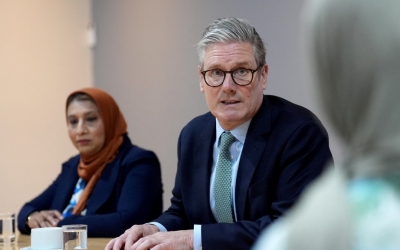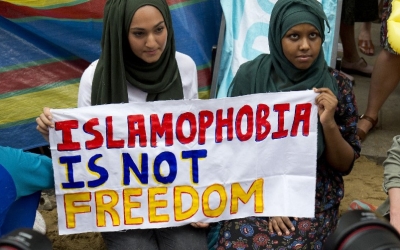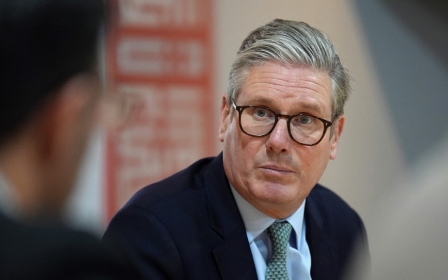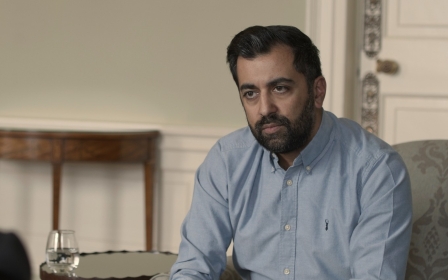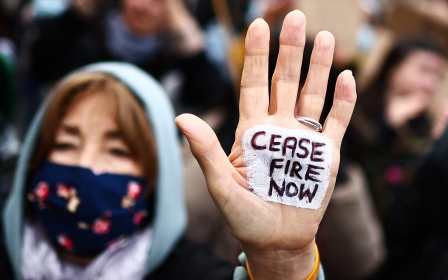The normalising of Islamophobia in UK public life is fuelling hate and violence
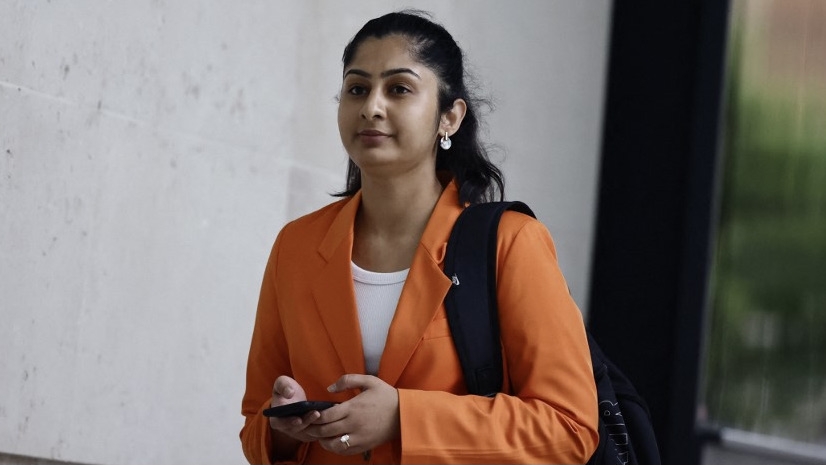
The violence that swept across the UK last month felt somehow grimly familiar. Within hours of the tragic murder of three beautiful children in Southport, Merseyside, the internet was awash with poisonous disinformation.
High-profile figures were reposting false claims that the perpetrator was Muslim, in an attempt to fuel narratives about the supposed failures of immigration and multiculturalism.
Neighbourhoods across the country were attacked by far-right mobs. Mosques, homes and businesses were targeted, and Muslims and people of colour were assaulted in the street, often in broad daylight.
These attacks were the culmination of years of Islamophobic and anti-immigrant rhetoric used with increasing frequency and zealousness in public life.
Anti-Muslim prejudice and hatred in particular has gone unchallenged in much of the media, which instead has often chosen to platform politicians who articulate or pander to such views.
New MEE newsletter: Jerusalem Dispatch
Sign up to get the latest insights and analysis on Israel-Palestine, alongside Turkey Unpacked and other MEE newsletters
Since October, Islamophobic attacks in the UK have increased by 600 percent, according to the monitoring group Tell Mama. Yet still no action is being taken to address the hate speech and misinformation that drove these riots.
Three weeks after the violence that in many cases so clearly and specifically targeted Muslims, there is still a reluctance from political leaders to call the attacks Islamophobic.
This silence will only create a vacuum, which will be filled by the migrant- and Muslim-baiting of Reform UK, or fuel a dangerous lack of faith in our political system.
Constant 'othering'
Islamophobia - which the All Party Parliamentary Group on British Muslims defined as "a type of racism that targets expressions of Muslimness or perceived Muslimness" - presents itself in many ways.
It can be wilful misunderstanding or misrepresentation of our religion, a constant "othering" of Muslims, smearing of all Muslims as terrorists or would-be terrorists, insinuations that we do not belong here and that our values are contrary to "British values", and attacks on Muslims or places where Muslims might be.
It extends to dislike or distrust of Muslims in public life, especially when we organise politically or demonstrate any kind of political strength.
That hostility to Muslim political representation has grown sharply. Muslim politicians subjected to Islamophobia span every major political party.
Zarah Sultana, the youngest-ever Muslim MP to be elected to parliament, is the most at-risk MP online, according to parliament’s own records.
The mayor of London, Sadiq Khan, was accused by former Tory and now Reform MP Lee Anderson of being under the control of "Islamists" and handing over London to "extremists". Anderson refused to apologise.
Humza Yousaf, former first minister of Scotland, said recently that it was "increasingly difficult to persuade fellow Muslims that Europe doesn’t have a problem with our very existence".
Last year, former Conservative Party co-chair Baroness Sayeeda Warsi warned her family not to walk home alone from the mosque after what she described as "racist rhetoric" from the then-home secretary, Suella Braverman.
It is incredible that such comments have come from the highest political offices, with little to no response.
Double standards
There is also an increasing effort to challenge the legitimacy of Muslim politicians and their democratic election to office.
In July’s general election, four independent Muslim candidates won seats. Of these, the biggest upset came in Leicester South, where Shockat Adam defeated the Labour incumbent, Jonathan Ashworth.
Despite winning these elections fair and square, there has been a political campaign played out across the media to delegitimise both the victors and those who voted for them.
Only yesterday, Conservative leadership candidate, Kemi Badenoch MP, talked about the 'five new MPs elected [including Jeremy Corbyn] on the back of sectarian, Islamist politics – alien ideas that have no place here'.
In Leicester, which has a large British Muslim electorate, an archaic piece of discriminatory legislation is again being used to disenfranchise local voters.
"Undue spiritual influence" was originally introduced in the 19th century to oppress Catholics, a then disadvantaged and discriminated-against religious minority, especially in Ireland.
Muslims are frequently subject to double standards, driven by an underlying suspicion about their motivations in public life
It wasn’t invoked again until 2015, when a deputy judge presiding over an ad hoc election tribunal smeared British-Bengali voters in Tower Hamlets and annulled the 2014 local election result, removing me from office in the process.
The religious target may have changed, but the assertion remains the same: adherents of a particular religion cannot be trusted to vote in the right way. In 2024, it is as difficult to understand how this anti-democratic law still operates as it is to imagine it now being applied to any religious minority in Britain other than Muslims.
Islamophobia in public life does not only apply to elected politicians. Muslims get involved in politics for the same reasons that all people do: to represent their communities, to advocate for the powerless and to improve people’s lives.
However, Muslims are frequently subject to double standards, driven by an underlying suspicion about their motivations in public life.
Scapegoats
Muslims have been actively courted by political parties, but as soon as we begin to organise ourselves, and become more influential, we are labelled "entryists". The consistent othering of Muslims dehumanises us and removes our right to be political actors, to be allowed to organise, stand for election, and to use whatever power is given to us by the electorate, just as all other politicians do.
The conditions for the racist violence we’ve seen erupt recently are not difficult to explain.
Economic decline lies behind the increasing normalisation of far-right rhetoric and the spread of disinformation.
People have suffered a drastic reduction in living standards for well over a decade. The brutal austerity regime, with its eternal hopelessness, makes some communities ripe for far-right influence.
Large-scale public investment in frontline services can do much to reduce inequality and strengthen social cohesion. Refusing to acknowledge the impact of austerity will only exacerbate our problems.
At the same time, Islamophobia and racism need to be challenged at every level. Ministers and public officials must take the lead and call this poison out by its name. Leaving it to fester is dangerous for us all, not just Muslims.
With national political leaders at the forefront, we can reset standards in public discourse and show that no racism of any kind will be tolerated in our society. And the government must back up those messages with action.
Ministers should be visiting Muslim communities across the country to show support and solidarity. The government should reopen official dialogue with the main representative Muslim organisations, including the Muslim Council of Britain. They should ensure that the "Prevent" programme, along with wider counter-extremism legislation and protocols, are not used to intimidate and discriminate against the majority of Muslims.
The time for scapegoating is over.
The views expressed in this article belong to the author and do not necessarily reflect the editorial policy of Middle East Eye.
Middle East Eye delivers independent and unrivalled coverage and analysis of the Middle East, North Africa and beyond. To learn more about republishing this content and the associated fees, please fill out this form. More about MEE can be found here.


